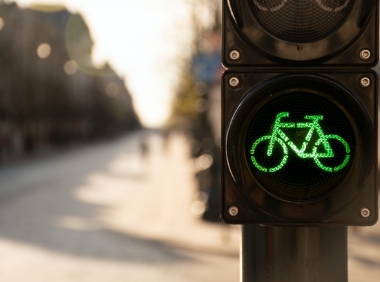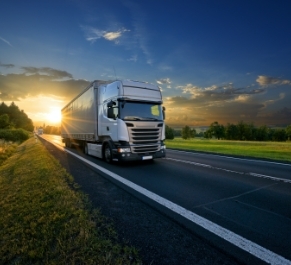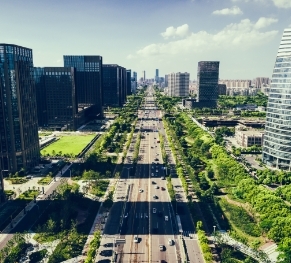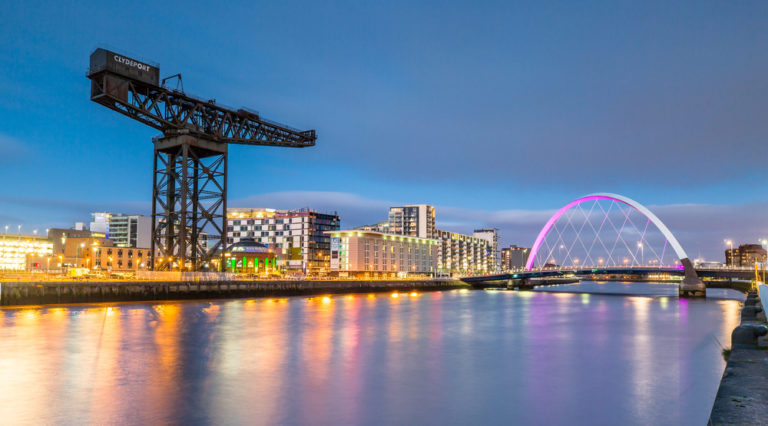Home » Knowledge Base » What is the transport decarbonisation plan?
What is the transport decarbonisation plan?
In order to reach its larger net zero target by 2050, the UK Government are aiming to decarbonise the entire transport system in the UK. The method for this massive decarbonisation effort is known as the transport decarbonisation plan.
In this guide we’ll explain what the transport decarbonisation plan is, how the plan will impact businesses and local authorities, and how low carbon transport will help Britain reach its net zero target.
What is the transport decarbonisation plan?
Decarbonisation is the process of reducing or eliminating greenhouse gas emissions from industries, including transport. Decarbonisation is an important part of tackling climate change, including the emissions from transport.
The transport decarbonisation plan is a strategy devised by the UK government to reduce emissions from the transport sector, and runs alongside the UK Government’s commitment to achieve net zero carbon emissions by 2050.
Transport is a key contributor to climate change, and the plan sets out how the government will decarbonise its entire system of transport in order to meet its net zero emissions target by 2050.
If the UK is to meet its net zero emissions target by 2050, then like Ireland it will need to drastically reduce its greenhouse gas emissions.
The plan outlines the UK’s strategy for decarbonising its transfer system. This is a four-fold approach which includes:
- Reducing emissions
- Cutting costs for businesses and consumers
- Improving air quality across the UK
- Tackling congestion
The four goals listed above will dovetail with and feed into the plan’s ultimate goal – decarbonising the UK transport system and reducing transport-related greenhouse gas emissions by at least 80% in 2050 compared with 1990 levels.

What does the transport decarbonisation plan mean for travel in the UK?
The mission to decarbonise transport in the UK will impact every part of the transport sector, from public transport to commercial flights. Here’s how the plan will impact how people travel and work in the UK.
Public transport
As an example of a more efficient use of fuel, and the sharing of resources, public transport is absolutely key to the decarbonisation of transport in the UK.
As part of the transport decarbonisation plan, £2 billion will be invested in active forms of travel – like cycling and walking – over the next five years, with the aim that by 2030, half of all journeys within UK towns and cities will be on foot or by bike.
The UK has also committed to creating a ‘world class’ cycling network across the country by no later than 2040.
Personal passenger vehicles
Investing in public transport won’t be enough on its own to deliver a net zero transport system in the UK, so attention has also been paid to cleaning up travel by personal passenger vehicle.
The overall goal is for petrol and diesel cars to be replaced by electric vehicles. The UK has shown it is taking this issue seriously by bringing the ban on the sale of new petrol and diesel cars forward by five years, from 2035 to 2030.
There has also been discussions about setting up a zero emission vehicle mandate, which would provide clarity to UK car manufacturers over issues like what percentage of the overall market should be taken up by zero emission vehicles, electric vehicle charging infrastructure, and more.
HGVs and Buses
One of the standout committments in the UK’s net zero transport plan is the pledge to ban the new sale of HGVs and buses that are fuelled by petrol and diesel.
The ban would ensure that only electric-powered freight vehicles could be sold in the UK, and is part of a wider effort to phase out of fossil-fuelled road freight by 2040.
As well as road freight, the UK Government is also exploring the idea of gradually phasing out petrol and diesel passenger vehicles like coaches and buses.
Rail and freight
Rail travel and rail freight currently amounts to 2% of the UK’s overall emissions, which is why creating a net zero rail network is a central part of the transport decarbonisation plan.
The Government plans to support the development of battery and hydrogen trains, and remove all diesel-only trains from passenger and freight services by 2040, with the aim of creating a net zero rail network in the UK by 2050.
Aviation
If the UK is ever to reach its ambitious climate targets, then net zero aviation needs to become a reality – aviation accounts for 3% of global emissions, and that percentage is on the rise.
The UK addresses this issue in the transport decarbonisation plan. The Government has launched a ‘Jet Zero’ initiative that will seek to decarbonise the sector by 2050. This covers all airport operations in England, as well as all domestic UK flights.
In addition, an early target of net zero by 2040 will be considered for domestic flights, and absolute net emissions across the UK aviation sector should be reduced by at least 15% by 2030, and at least 40% by 2040.
Maritime and shipping
There is less clarity over maritime emissions than emissions involving rail, aviation, or public transport, but the Government has indicated that maritime travel and freight will be included in the plan.
It’s thought that the plan will include an ‘indicative’ target of 2030 to greatly reduce maritime and shipping emissions, as well as a bid to reach net zero in the sector as soon as feasibly possible.
How will the transport decarbonisation plan impact local businesses?
Reducing emissions from transport is not only good for the environment, but it’s also good for business. The transport decarbonisation plan includes a number of measures which will help businesses reduce their emissions and save money at the same time.
Cleaner transport will provide and sustain a wide range of highly paid employment, with the production of zero-emission road vehicles alone having the capacity to support tens of thousands of high-paying jobs worth up to £9.7 billion GVA by 2050.
The plan aims to ensure that the decarbonisation of transport is not simply part of a technocratic process. Instead, it focuses on how transport can reshape the economy, and the way people live their lives, in a positive and sustainable way.

What benefits can lower-emission transport bring to wider society?
Reducing emissions from transport has wider benefits for the health of the UK population, as well as improving general quality of life. Transport decarbonisation can help reduce harmful air pollutants which have a significant effect on human health.
Net zero transport will also benefit society by optimising existing resources. Transport decarbonisation can help reduce congestion, improve road safety by reducing kilometres travelled, and enhance public health through more active modes of transport such as walking or cycling.
In theory, transport decarbonisation will also make the net zero economy run more smoothly, as goods and services will be delivered more quickly, efficiently, and in line with emissions guidelines.

Will the transport decarbonisation plan deliver net zero in Britain?
The transport decarbonisation plan will go a long way in helping the UK achieve its net zero emissions target by 2050.
Transport currently accounts for around a fifth of total UK greenhouse gas emissions, nearly one third of carbon dioxide (CO2), and around 80% of all NOx (nitrogen oxide) emitted. Transport isalso responsible for around 30% of the UK’s total energy consumption, and accounts for over half of its overall fuel consumption.
Achieving net zero means that on balance, any remaining greenhouse gases released into the atmosphere through human activity will be offset by removing an equal amount from the atmosphere, making it carbon neutral.
While the transport decarbonisation plan won’t get the UK to net zero on its own, net zero can’t be achieved without first decarbonising transport in the UK.
Where can I can I get more information on decarbonisation in the transport sector?
Both the UK and Ireland have pledged to reach net zero carbon emissions by 2050, a wide-scale process which will involve decarbonising large parts of the economy.
At Action Zero, we specialise in patented technology that helps businesses decarbonise their business processes by as much as 70%.
Whether you’re a business owner interested in reducing your company’s carbon emissions, or you’re hearing about decarbonsation for the first time, we can help. To find out more, get in touch with Action Zero today on +353 876 489 628.
Explore our knowledge base

What is net zero carbon?

What is the public sector decarbonisation scheme?

What is decarbonisation?

Example KB 6

Example KB 5

Example KB 4

Example KB 3

Example KB 2


